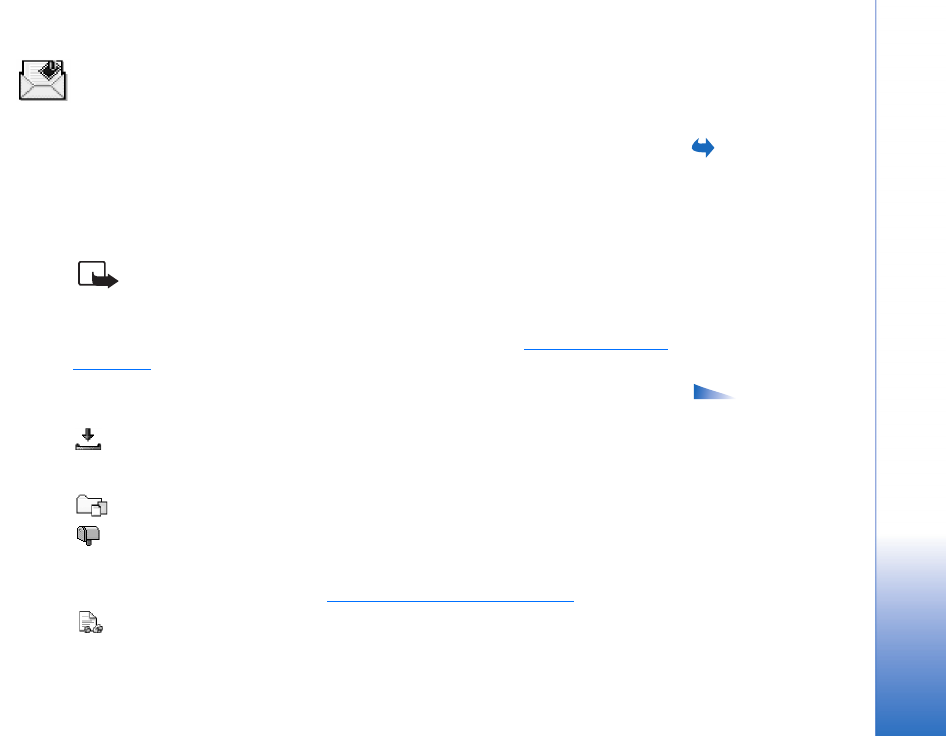
Copyright © 2004 Nokia. All rights reserved.
Messaging
45
Messaging
Go to Menu→
Messaging.
In Messaging you can create, send, receive, view, edit, and organise: text messages,
multimedia messages, e-mail messages, and smart messages. Smart messages are special
text messages that can be picture messages, or messages containing ring tones,
configuration settings, bookmarks, contact details or calendar items. You can also receive
messages and data via a Bluetooth connection, receive service messages, cell broadcast
messages, and send service commands.
Note: Picture message function can be used only if it is supported by your network
operator or service provider. Only devices that offer picture message features can
receive and display picture messages.
Text messages and multimedia messages (MMS) use shared memory. See “Shared memory”
on page 14.
Options in the
Messaging main view:
Create message, Connect
(shown if you have
defined settings for the
mailbox), or Disconnect
(shown if there is an
active connection to the
mailbox), SIM messages,
Cell broadcast, Service
command, Settings, Help,
and Exit.
When you open Messaging, you can see the New message function and a list of default
folders:
Inbox - Contains received messages except e-mail and cell broadcast messages. E-
mail messages are stored in the Mailbox. You can read cell broadcast messages by selecting
Options→ Cell broadcast.
My folders - For organising your messages into folders.
Mailbox - When you open this folder, you can either connect to your remote mailbox
to retrieve your new e-mail messages or view your previously retrieved e-mail messages
offline. After you have defined settings for a new mailbox, the name given to that mailbox
will replace Mailbox in the main view. See “Settings for e-mail” on page 60.
Drafts - Stores draft messages that have not been sent.


















